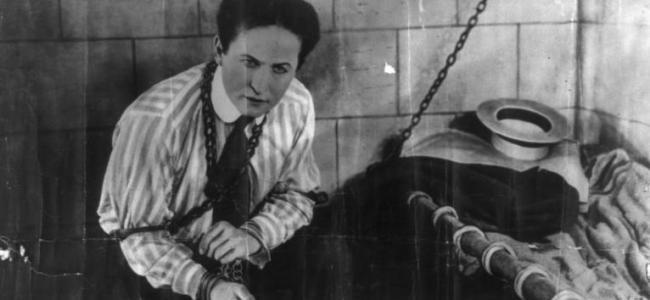Unions: Houdini Wannabes

Unions Escape Minimum Wage They Chain to Employers
Minimum wage laws sound fair. But are they?
Minimum wage hikes increase labor costs for employers leading to fewer opportunities for workers: Employers faced with increased labor costs may not be able to hire as many workers as they need, hurting productivity and growth.
For instance, the first minimum wage law enacted in 1933 caused up to 50,000 people to lose their jobs according to the Bureau of Labor Statistics.
In spite of this, unions continue to push for higher minimum wages.
The American Federation of Labor-Congress of Industrial Organizations (ALF-CIO) union president Richard L. Trumka calls for minimum wage hikes in his co-authored article in Reuters:
“Fortunately, the solution to this part of the wage crisis is simple: Fix the minimum wage. Raise it, boost the guaranteed rate for tipped workers (frozen at a scandalous $2.13 since 1991), and index the overall wage to the cost of living.”
But, if minimum wage increases are so important to unions, why do unions have an “escape clause?”
The “escape clause” gives employers the option to pay their workers below minimum wage if they are engaged in a collective bargaining agreement.
Ultimately, the “escape clause” is a clever ploy used by union leaders to gain representation in companies that would have otherwise remained a union-free workplace. The cost of non-union workers is driven up by the minimum wage increase making unionization seem like the affordable option. When employers try to save resources by choosing to unionize, unions gain members, money and power.
The U.S. Chamber of Commerce’s report on this topic, Labor’s Minimum Wage Exemption: Union’s as the “Low-Cost” Option, highlights several instances that it believes enabled unions to benefit from minimum wage ordinances with an “escape clause.”
For example, UNITE-HERE Local 11 represents hotel workers in Los Angeles, California. In 2007, Local 11 had 13,626 members. Following the city’s enactment of a hotel minimum wage hike, which included a union “escape clause,” Local 11’s membership grew to 20, 896 by 2013. Additionally, Local 11 saw a revenue increase of $5.2 million.
According to the Chamber of Commerce’s report, union exploitation of minimum wage ordinances has mostly been an issue on the West Coast. However, it expects that unions nation-wide will certainly pickup on the “escape clause” tactic, and push for similar measures:
“Given organized labor’s role in many local minimum wage campaigns, the union escape clause highlighted in this report is likely to appear more frequently.”
Through the “escape clause,” union membership increases, but not the wages of their members. Even worse, union members will continue to lose more money as the union takes chunks of their paycheck through forced dues deduction.
The “escape clause” is a cynical scheme used by unions to expand membership, collect dues and gain power.
Union leaders sit back and watch employers suffer under the minimum wage hike burdens that only they, the Houdini-like, can escape.





